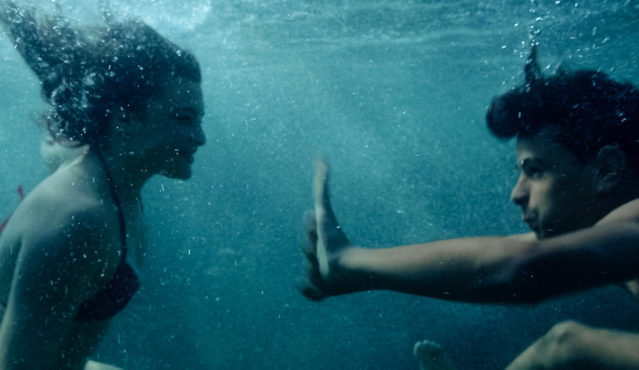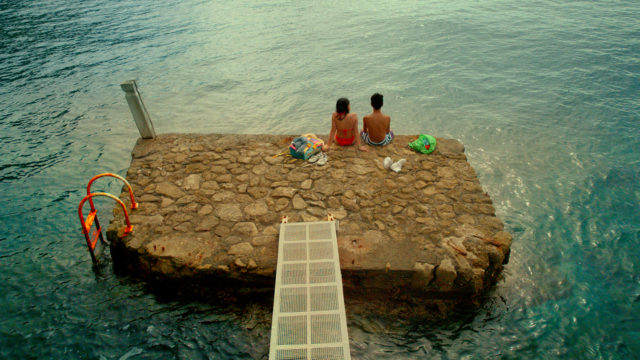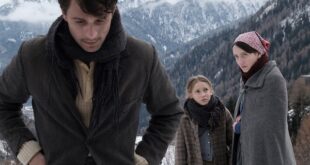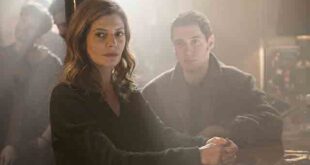The 47th edition of the Giffoni Film Festival is now in the record books. Over the last week, the signature Blue Carpet has been graced with filmmakers who have come from all over the world to celebrate cinema dedicated to children and teens.
The first edition of the Giffoni Film Festival took place in 1971 in its namesake city of Giffoni Valle Piana, which is located in the region of Campania. The festival has served not only as an event to watch films, but also as a place for youngsters to learn about the filmmaking process. The French master François Truffaut is quoted saying “Of all the film festivals, Giffoni is the most necessary.” Perhaps that has something to do with its renowned Masterclasses. This year’s festival goers were treated to lessons and discussions by some of the biggest names in Italian cinema including Marco Giallini, Gabriele Salvatores and Gabriele Muccino. The festival has hosted numerous extinguished guest over the years including Robert De Niro, Sergio Leone, Michelangelo Antonioni, and Alberto Sordi.
After years of reading about this festival, I was finally able to experience it firsthand. I made the trip to attend a special screening of a short film shot entirely in Basilicata with regional actors. “Non gioco più” is set in 1994 Maratea during a championship soccer game between Italy and Brazil. It’s a coming-of-age story marked by adolescent love between teenagers Alice and Martino. Directed by Sicilian-born filmmaker Sebastiano Luca Insinga, the film is a poetic homage to the innocence and curiosity of adolescence set against the natural force of the majestic sea. Both worlds blend in this mystic summer tale.
Sebastiano Luca Insinga was born in Catania in 1984. He studied literature in the northern city of Trentino, where he began experimenting with photography and video. Then in 2008, he shot his first short on Super8 video. Four years later, his documentary “Nulla è Accaduto” was selected for the Berlin Film Festival’s “Talent Campus.” A year later, he co-directed Italian actress Cristiana Capotondi in the short film “Hands.”
I caught up with Insinga just before he presented the film at the Giffoni Film Festival. We talked about the inspiration behind telling this story and the experience of shooting in the paradise setting of Maratea along the Tyrrhenian Sea.
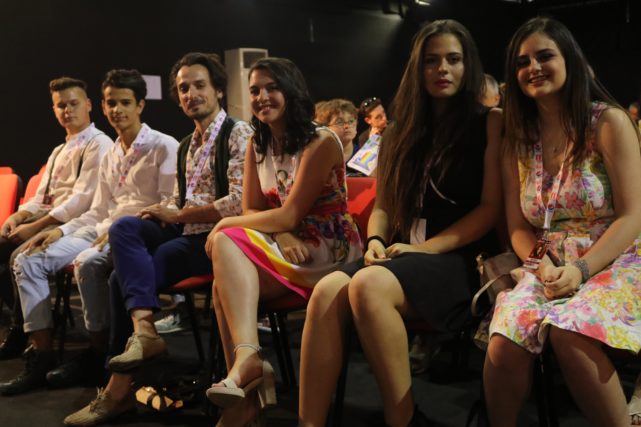
Tell me about the story and why you wanted to tell it in light of this championship game between Italy and Brasil.
The film takes place during a single afternoon on a special day, July 17, 1994, the day of the World Cup finals between Italy and Brazil. It remains an unforgettable day for us Italians because of all those who could make a mistake in the penalty shot, it was Roberto Baggio, our greatest talent, to kick high above the crossbar. Often in life, it’s the difficult times that make us grow. Martino, the protagonist of “Non gioco più,” wants to grow up and shortly after the game ends, he will move away from his hometown with his family and he will be far away from Alice, a special girl that he does not want to leave. I thought the story of the penalty kick was similar to Martino’s because they both lost a great opportunity forever.
The film has a beautiful, poetic ambience. Tell me about the style in which you shot in order to achieve this atmospheric beauty.
Although the film is set at a very precise moment, we tried to create a stage that has little adherence to the reality of those years. The scenic work of Nicola Ciuffo was very precise and careful in making sure that all objects, furnishings, and scooters really belonged to those years. The same research was done in relation to costumes and hairstyles. Despite this, the film does not look like a costumed movie and the historical setting does not weigh on the film. I tried to make a clean sweep of nostalgia and especially of any imitations. Then with Leone Orfeo, the director of photography, we created a triple narrative and aesthetic, one that is absolutely dreamlike in each frame of the film. This is where Martino and Alice are close to their similar intentions and these moments have been constructed with the utmost purity and candor, such as the love that is born at 13-years-old. Then comes something that breaks the balance between them and from that moment on, everything becomes less stable and calculable. This was a bit of a risk and I realized it. When you condense such aesthetic jumps that may be unjustified or less obvious, you take the risk of confusing the spectator. In the end, however, I am convinced that we did well to experiment, because we were free within the rules we made.
What were your reasons for choosing Maratea as the location for the film?
Many years before shooting “Non gioco più,” I ended up in Maratea on vacation almost by accident. It was easy to fall in love with that place because somehow it brought me back to the contrast of the land where I was born, a gorgeous sea with rock peaking over it. During that holiday, I found a deserted hotel in total decay, the Marisdea – a beautiful name. When I wrote this story, I thought of the group of kids also finding themselves in an abandoned place away from everything. So it was natural to set the film in Maratea. I needed the sea but a sea away from the typical reverberation. In fact, we turned to a beach where the sand is black, always in the idea of creating a world out of the world. Thanks to these elements, we created a suspended universe and in the film, these guys are totally abandoned in a space without references.
Tell me about your experience shooting along the beautiful sea.
Shooting in beautiful places is easier because even when the fatigue arrives and the forces begin to fail, you can lose yourself in the beauty around you and recharge your energy.
Without giving too much away, the film ends with a special appearance by the journalist and former professional soccer player Bruno Pizzul. He was the commentator for that infamous match in 1994. The director’s choice to have Pizzul in this role adds a unique touch to the film and makes the experience of watching it that much richer.
“Non gioco più” will be shown next at the Giornate del Cinema in Maratea on July 28 and then at the Lucania Film Festival in Pisticci, Basilicata, in the section “Spazio Italia,” which will take place August 9-13. Click here for more information.
Insinga’s short film “Hands” starring Cristiana Capotondi is available on Vimeo. Click here to watch the film.
 Fra Noi Embrace Your Inner Italian
Fra Noi Embrace Your Inner Italian


